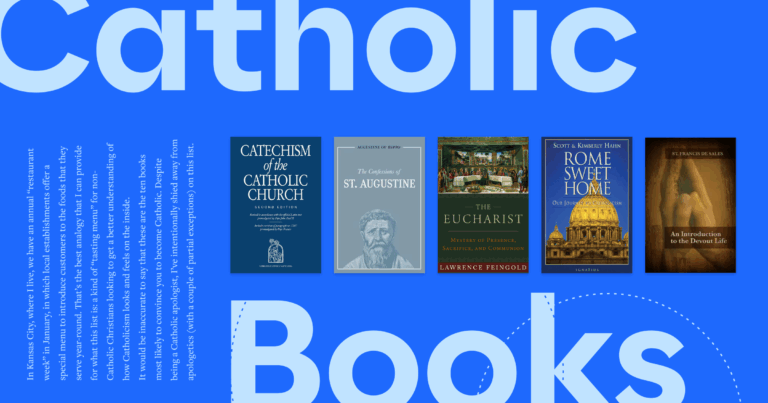
In Kansas City, where I live, we have an annual “restaurant week” in January, in which local establishments offer a special menu to introduce customers to the foods that they serve year-round. That’s the best analogy that I can provide for what this list is: a kind of “tasting menu” for non-Catholic Christians looking to get a better understanding of how Catholicism looks and feels on the inside.
It would be inaccurate to say that these are the ten books most likely to convince you to become Catholic. Despite being a Catholic apologist, I’ve intentionally shied away from apologetics (with a couple of partial exceptions) on this list. It would also be unfair to call this a “top ten” list, since the omissions on this list are painful: You’ll find no mention of Benedict XVI’s three-volume Jesus of Nazareth series, or Scott Hahn’s The Lamb’s Supper, or Trent Horn’s Why We’re Catholic, or Thomas à Kempis’s Imitation of Christ, or St. Ignatius of Loyola’s Spiritual Exercises. But I can nearly guarantee that the person who reads these ten books will come away with a more profound understanding of both Catholic doctrine and spirituality than when they began.
Table of contents
The big picture
The vastness of Catholicism can be daunting for those seeking to make sense of it, and so the books in this section are intended to give something of a glimpse of the “big picture.”
1. The Catechism of the Catholic Church
The strength (and weakness) of the Catechism of the Catholic Church is that its audience is everyone. It’s not written to address the concerns of any one group but is instead an attempt by the Church to systematically lay out what Catholics believe, and why. This means, on the one hand, that you might find something more directly tailored to your perspective elsewhere. But on the other hand, the Catechism shouldn’t be overlooked as a proper starting point to make sense of Catholic doctrine.
It’s broken up into four parts.
- Part I is about what Catholics believe: Framed around the Nicene Creed, it explores theology proper, particularly Christology.
- Part II is about how Catholics worship, with a particular focus on sacramental theology.
- Part III is the moral life, using the Beatitudes and the Ten Commandments as a framework for exploring who we are and how we are to live.
- Part IV is on how Catholics pray, with a special emphasis on the Lord’s Prayer, which gets a lengthy exposition.
A familiarity with the Catechism (or at least knowing where to find things in it) is crucial in debunking false claims of “what Catholics really believe.” Plus, the extensive footnotes and quotations give a nice jumping-off point for those who would like to go deeper on a particular doctrine.
Catechism of the Catholic Church, Revised
Save $0.95 (5%)
Price: $18.04
-->Regular price: $18.99
2. Catholicism: A Journey to the Heart of the Faith, by Robert Barron
Many readers will be familiar with Bishop Robert Barron’s Word on Fire ministry, which engages with the broader culture to defend a Catholic (and more broadly Christian) worldview against secular challenges. In the early days of Word on Fire, then-Father Barron narrated a ten-episode series on Catholicism that aired on various PBS affiliates throughout the country.
This book, which he described as “a celebration, in words and imagery, of the God who takes infinite delight in bringing human beings to fullness of life,”1 emerged from that work. It’s written as an introduction both to Christianity generally and Catholicism specifically, but with the particular goals of painting the big picture and of showing how Catholicism is incarnational: not just a series of doctrines or ideas, but a spirituality that engages us at the level of body and soul.
3. Rome Sweet Home: Our Journey to Catholicism, by Scott & Kimberly Hahn
In 1986, a Presbyterian minister by the name of Scott Hahn was received into the Catholic Church. Four years later, his wife Kimberly followed him. This book is their explanation why.
The book’s tone is conversational and is written as a sort of joint spiritual autobiography, as the two spouses alternate narrating difficult moments in their journey. It’s a glimpse into the mind and heart of a couple discerning Catholicism, and as such, can be helpful for other couples discerning Catholicism. But perhaps even more importantly, the book has proven helpful for couples where one spouse is drawn to Catholicism while the other is not.
The Hahns use this conversational and autobiographical approach to explore important doctrinal questions. After all, Scott Hahn graduated summa cum laude from Gordon-Conwell Theological Seminary. Eventually, he would go on to receive a PhD from Marquette University with a dissertation on covenant theology. This covenantal theme plays an important role both in his earlier Presbyterian theology and in his exploration of the Catholic Church.
Rome Sweet Home: Our Journey to Catholicism
Save $0.55 (5%)
Price: $10.44
-->Regular price: $10.99
Saints & spirituality
Pope Benedict XVI once observed that while arguments from reason “are unquestionably important and indispensable,”2 even the most airtight argument can be resisted. But when “we look at the saints, this great luminous trail on which God passed through history, we see that there truly is a force of good which resists the millennia; there truly is the light of light.”3
The books in this section are glimmers of light on that great luminous trail.
4. An Introduction to the Devout Life, by St. Francis de Sales
Frances de Sales, the Catholic Bishop of Geneva from 1602 to 1622, was famed for his theological works (chiefly his treatise Of the Love of God) and for his apologetical works arguing against Calvinism (a series of pamphlets later collected and issued as a book entitled The Catholic Controversy). But without a doubt, his most important legacy was in his spiritual counsels, particularly his An Introduction to the Devout Life.
The work was occasioned by Francis’s cousin, Madame Marie de Charmoisy, who desired to live a life of holiness while her husband served as an ambassador. The challenge Madame de Charmoisy was facing was simple: Many of the devotional works of this period assumed that the person striving for sanctity was living in a convent or a monastery, not attending grand banquets. But spiritual counsel written by and for monks and nuns might not be well-suited for the life of Christian laity.
And so Francis writes a book-length response to her, built upon two simple premises: first, that everyone is called to holiness; and second, that
Devotion ought to be differently exercised by the prince, by the gentleman, by the tradesman, by the servant, by the widow, by the maid, and by the married person: and not only so, but the practice also of devotion must be accommodated to the health, the capacity, the employment, and the obligations of each one in particular.4
On the four-hundredth anniversary of Francis de Sales’ death, Pope Francis summed up the message of the book pithily: “devotion is meant for everyone, in every situation, and each of us can practice it in accordance with our own vocation.”5 And Francis de Sales showed us how to live that out.
An Introduction to the Devout Life
Save $0.50 (5%)
Price: $9.49
-->Regular price: $9.99

5. The Story of a Soul, by St. Thérèse of Lisieux
When Thérèse of Lisieux died of tuberculosis at the age of twenty-four in 1897, few outside of her Carmelite convent and her family had ever heard of her. Yet when she was canonized in 1925, some half a million pilgrims came to St. Peter’s Square to witness her canonization as a saint.
What had changed? Shortly before her death, the prioress of the convent, Mother Agnes of Jesus (Thérèse’s older sister, Pauline), had ordered her to create a sort of spiritual autobiography. After she died, her words circulated inside the convent, and then to the broader world. The words were revolutionary. What Thérèse described was a different conception of holiness than that of the popular imagination.
It’s easy to read the stories of the saints of old and their heroic (and even legendary) feats and to come away feeling discouraged, in much the same way that a man with one talent might be discouraged when his neighbor has five. Thérèse herself described feeling like an “obscure grain of sand” in comparison to the towering mountains of such saints. But instead of becoming discouraged, she wrote that
I concluded that God would not inspire desires which could not be realised, and that I may aspire to sanctity in spite of my littleness. For me to become great is impossible. I must bear with myself and my many imperfections.6
This path of holiness, which she described as “a little way,” is the hallmark of Thérèse’s spirituality: Instead of striving to become bigger so that you can perform heroic deeds for Christ, the focus is instead upon giving Christ your littleness, and recognizing your weakness and radical dependence upon him.
The Story of a Soul, with Letters
Save $0.50 (5%)
Price: $9.49
-->Regular price: $9.99
6. Confessions, by St. Augustine of Hippo
Augustine’s Confessions is both a literary and theological masterpiece. Stylistically, Augustine pioneered the genre of autobiography, which was virtually unheard of before him. But his work is not a simple autobiography: It’s written in the form of a lengthy (thirteen-volume) prayer to God, recounting the author’s spiritual and intellectual journey from paganism and decadence to Manicheanism and ultimately (under the influence of the bishop St. Ambrose of Milan) to the Catholic Church.
The work is spiritually uplifting and beautifully written (“Too late loved I Thee, O Thou Beauty of ancient days, yet ever new! too late I loved Thee.”7). It’s hardly surprising that it has held such sway over Western Civilization for the past sixteen centuries. Reading his Confessions also helps to humanize the often-vilified Augustine of Hippo, and it sheds an important light on the nature of Christianity in the late fourth and early fifth centuries.
Morality
Catholic morality (with its belief in the existence of “intrinsic evils,” double effect, virtue ethics, and the like) can be alien to those coming from other ethical systems. And particularly in the area of sexual morality, the Catholic teachings on these matters are not just foreign to many non-Christians (e.g., on abortion) but even to many Protestant Christians (e.g., on masturbation, contraception, and IVF). The books in this section seek to bridge that gap, at least a little.
7. Aquinas: A Beginner’s Guide, by Edward Feser
It was tempting to include Thomas Aquinas’s Summa Theologica on this list, and those with a background in theology or philosophy would do well to engage with Thomas directly. After all, in the papal encyclical Aeterni Patris, Pope Leo XIII describes how the theologians and philosophers of “highest repute” would, “after mastering with infinite pains the immortal works of Thomas, gave themselves up not so much to be instructed in his angelic wisdom as to be nourished upon it.”8
But modern readers, particularly without a guide, may not be up for the “infinite pains” needed to master his works. Fortunately, there’s a wealth of secondary literature offering an introduction into Thomas’s philosophy and theology. One of the better starting points is Ed Feser’s Aquinas: A Beginner’s Guide. He unpacks Thomas Aquinas with a particular eye for his metaphysics, natural theology, psychology, and ethics. It’s not meant to be a thorough unpacking of the Summa, but (as the title suggests) serves to guide the reader into a deeper understanding of a great thinker and a great saint, and can serve as a helpful prolegomenon for reading Thomas directly.
8. Theology of the Body for Beginners: Rediscovering the Meaning of Life, Love, Sex and Gender, by Christopher West
In the aftermath of the sexual revolution, which did not spare the Catholic Church (and which found many dissident theologians openly speculating that sexual behaviors long considered sinful by the Church might actually be permissible), Pope St. John Paul II was faced with the difficult task of rebuilding a Christian sexual ethos, largely from the ground up. He did so in an admirable way. In a series of weekly Wednesday audiences, the pontiff began with the vision of man and woman laid out in Genesis and unpacked what a biblical anthropology means for how we understand ourselves, our bodies, and one another, and what this means in practical terms for sexual morality. This came to be known as the theology of the body.
Having been a Catholic philosopher prior to becoming pope, John Paul II was well-suited for this task. But he’s not always an easy read. So as with Thomas Aquinas, those who are patient enough to work through the source material will find themselves richly rewarded. But there’s no shame in bringing along a guide. Even John Paul II’s biographer, George Weigel, lamented that “the density of John Paul’s material is one factor” limiting the impact of his theology of the body, and he suggested that “a secondary literature capable of ‘translating’ John Paul’s thought into more accessible categories and vocabulary is badly needed.”9 Christopher West is the most successful of the authors who have responded to this call, and his Theology of the Body for Beginners is exactly what the title says it is.
The Eucharist
The final section is reserved for books on the Eucharist. Why? Because the Catechism of the Catholic Church (quoting the Second Vatican Council) describes the Eucharist as “the source and summit of the Christian life” (CCC 1324). Eucharistic theology isn’t just a Catholic–Protestant question, but a question at the heart of Christianity itself.
9. Jesus and the Jewish Roots of the Eucharist, by Brant Pitre
While there are many excellent books on the Eucharist, I know none that take the unique approach taken by Dr. Brant Pitre. He explores the doctrine of the Eucharist not by focusing on the writings of the early Christians or of modern popes or even the New Testament. He focuses instead on the Old Testament, exploring the various ways that Christ’s self-offering is prefigured there: sometimes obviously, and sometimes more subtly.
Special attention is given to the Passover lamb (the chief motif through which the New Testament authors understand Christ’s sacrifice), the manna, and the bread of the presence, before applying these things to Christ’s Last Supper and self-offering. Along the way, Pitre incorporates insights drawn from Jewish resources like the Talmud, with which many Christians are unfamiliar.
Given the task he lays out for himself in the book, he accomplishes it with a surprisingly conversational tone, and the work is eminently readable.
Jesus and the Jewish Roots of the Eucharist: Unlocking the Secrets of the Last Supper (audio)
Save $0.75 (5%)
Price: $14.23
-->Regular price: $14.98
10. The Eucharist: Mystery of Presence, Sacrifice, and Communion, by Lawrence Feingold
Whereas Pitre’s topic might seem daunting at first, the aspect of Dr. Lawrence Feingold’s book that might deter ordinary readers is its sheer length. At 720 pages, the book is unlikely to be picked up by a casual reader looking to go deeper in their knowledge of the Eucharist. That’s a shame, because the book is adapted from Feingold’s class notes in teaching seminarians. In other words, while not a true beginner’s guide, the prose is clear and straightforward for those wanting to go deeper in their understanding of the Catholic view, without supposing that you’re already a subject-matter expert.
Feingold’s argument is simple: “Christ instituted the Eucharist for the same reasons that he became man.”10 Christ came to earth to dwell among us (John 1:14), to offer himself as a sacrifice for us (1 Cor 5:7), and to enter into perfect communion with us (Rev 19:9). Feingold thus explores the Eucharist as a means by which Christ is present among us, as a means by which we become partakers in Christ’s atoning sacrifice, and as a means by which we enter into communion with God.
Related articles
- What Do Catholics (Really) Believe About the Bible?
- Augustine the Reader: Why You Should Take Up & Read ‘Confessions’
- Why Protestant Pastors Should Read a Catholic Pope on Pastoral Ministry
- What Is the Protestant Reformation? Everything You Need to Know
- Transform Your Prayer Life: 11 Essential Books on Prayer


 2 weeks ago
21
2 weeks ago
21


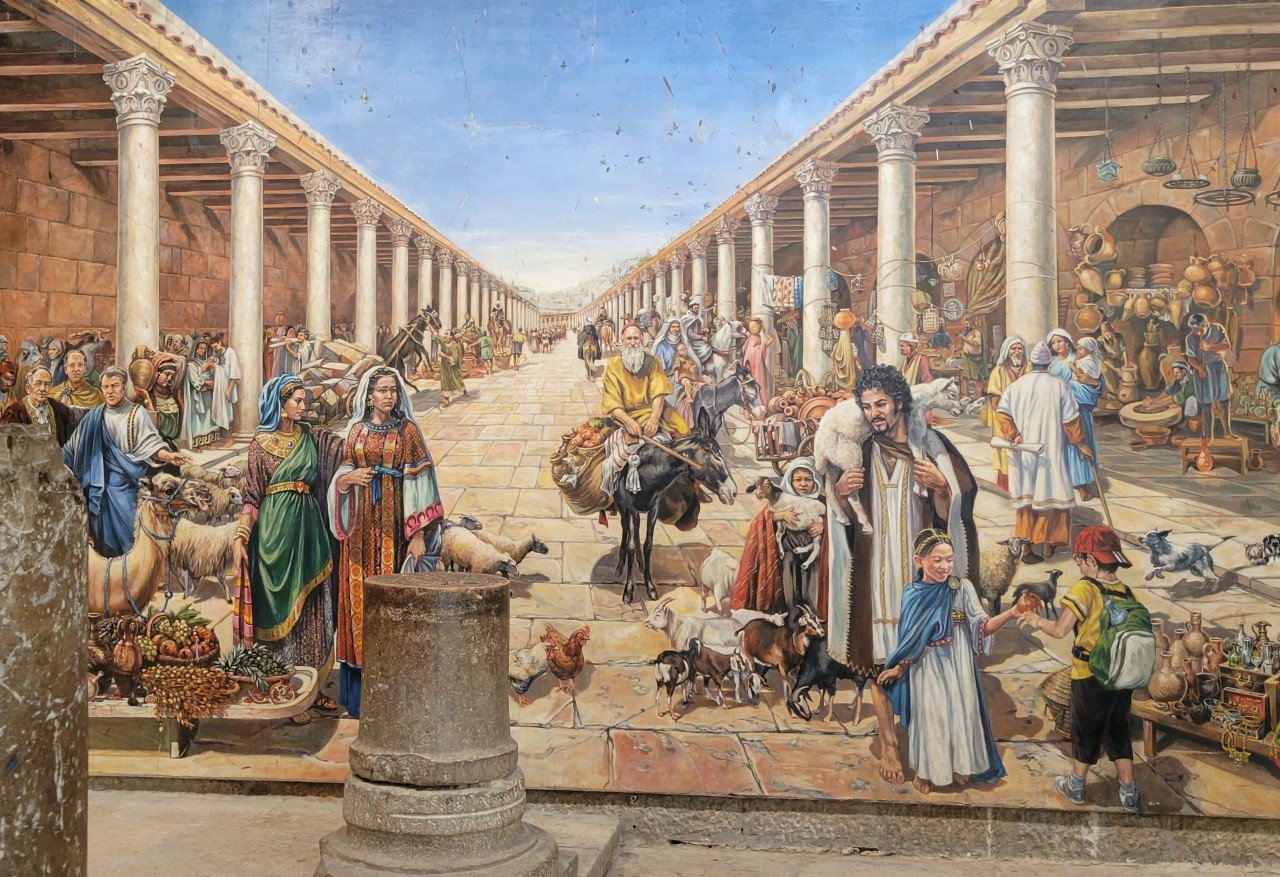
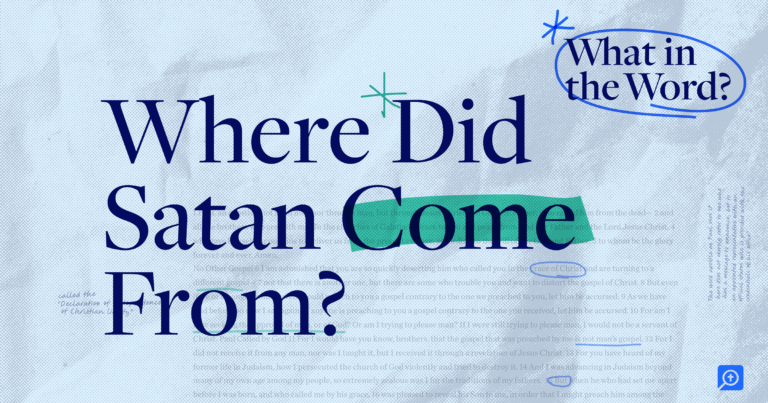
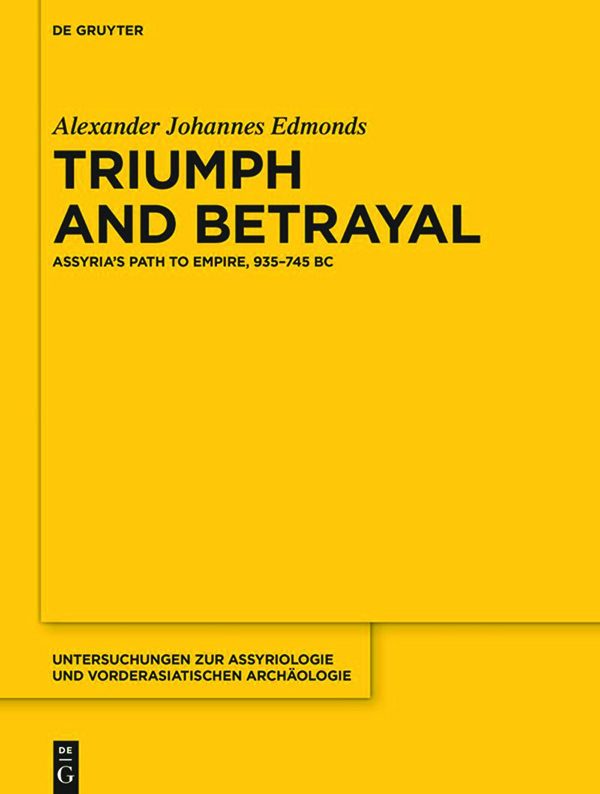
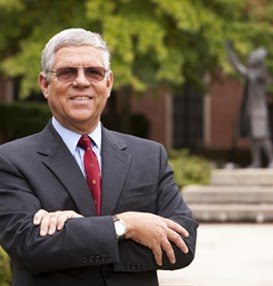




 English (US) ·
English (US) ·